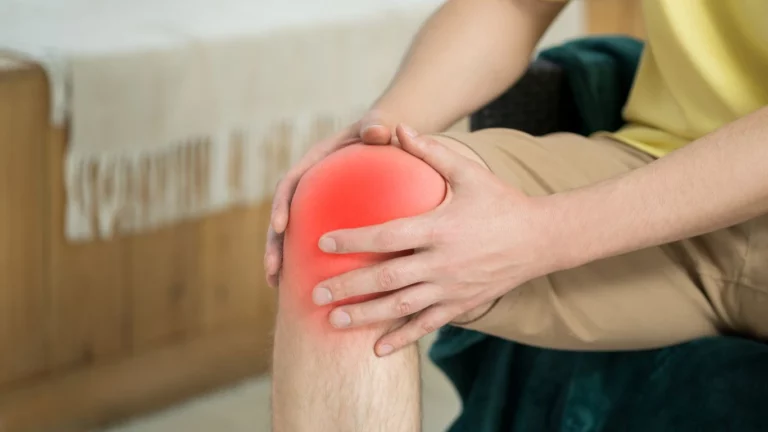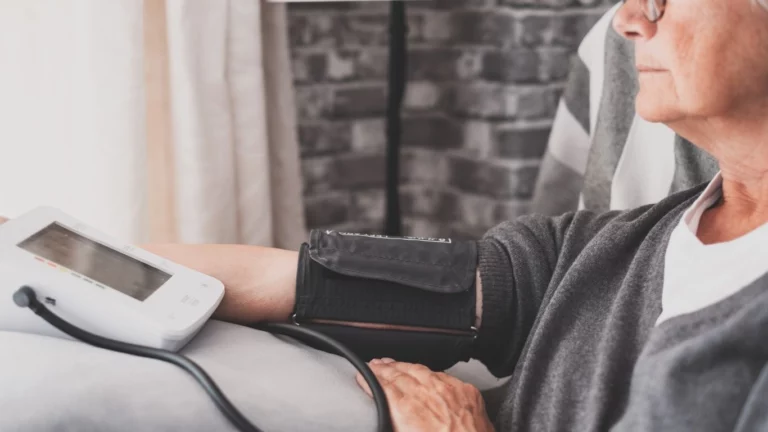GERD and Intermittent Fasting Guide – Can They Coexist?
Wondering if intermittent fasting is safe if you have GERD (Gastroesophageal Reflux Disease)? This guide dives into the relationship between GERD and intermittent fasting, helping you navigate both with practical advice and real-life examples.
If you’ve ever Googled intermittent fasting (IF), you’ve probably come across the many health benefits people rave about. From weight loss to improved metabolic health, it sounds like a magical fix for so many. But what if you have GERD, a condition that makes heartburn and indigestion a part of your everyday life? Can intermittent fasting still work for you? Well, that’s exactly what we’re going to explore in this guide. Buckle up!

Understanding GERD
Before we dive into how intermittent fasting could impact GERD, let’s quickly recap what GERD is. If you’re one of the 20% of Americans who deal with this, you know it’s not just about the occasional heartburn. GERD happens when stomach acid frequently flows back into the esophagus, causing symptoms like chest pain, regurgitation, difficulty swallowing, and a burning sensation in the chest. Not exactly something you want to make worse, right?
What is Intermittent Fasting?
For those new to the concept, intermittent fasting is a pattern of eating that cycles between periods of fasting and eating. It’s not about what you eat, but when you eat. Some popular IF methods include the 16:8, where you fast for 16 hours and eat during an 8-hour window, or the 5:2 method, which restricts calories two days a week.
The idea behind intermittent fasting is that by limiting your eating window, you allow your body to focus on repairing itself, balancing hormones, and burning fat. But does this sound like a recipe for disaster if you already struggle with GERD?
Can GERD and Intermittent Fasting Coexist?
So, here’s the big question: can GERD and intermittent fasting live in harmony? The short answer is—it depends. Let’s break it down.
How Intermittent Fasting Affects GERD
When you fast, your stomach produces acid even though it’s empty. For most people, this isn’t a big deal. But for those with GERD, this can cause issues, as the acid can irritate the esophagus more than usual. The longer you go without eating, the more acid your stomach can produce, leading to an increased risk of acid reflux when you finally break your fast. Yikes.
But don’t throw in the towel just yet! While intermittent fasting can potentially exacerbate GERD symptoms, it doesn’t mean you have to rule out IF altogether. With a few adjustments, you can still enjoy fasting while managing your GERD.

Tips for Managing GERD While Doing Intermittent Fasting
Here’s the thing: intermittent fasting isn’t a one-size-fits-all deal. If you’re dealing with GERD, it’s crucial to listen to your body and adjust as needed. Here are some tips that might help make IF a little easier on your stomach:
1. Start with a Shorter Fasting Window
Instead of jumping straight into a 16-hour fast, start with a shorter fasting window—maybe 12 hours to see how your body responds. This way, your stomach won’t be empty for as long, reducing the chance of acid production going haywire.
2. Avoid Trigger Foods During Eating Periods
If you’re eating fewer meals, make sure those meals are GERD-friendly. Avoid foods that are known to trigger reflux, like spicy dishes, citrus, chocolate, or fried foods. Eating smaller, more balanced meals during your eating window can also prevent the stomach from overproducing acid.
3. Focus on Alkaline Foods
Alkaline foods are less likely to trigger acid reflux, so aim to fill your plate with foods like bananas, melons, oatmeal, and leafy greens. These foods are soothing for the digestive system and can help keep things calm during your eating window.
4. Keep Hydrated
Dehydration can make GERD worse, so drink plenty of water during your fasting window. This can help neutralize stomach acid and prevent discomfort. Just be careful with overly carbonated drinks or too much caffeine, as they can irritate GERD symptoms.
5. Don’t Lie Down Right After Eating
This is probably old news, but it’s important—never lie down right after eating, especially when fasting. Gravity helps keep acid where it belongs, so give yourself some time (at least 30 minutes to an hour) before you lie down or go to bed after eating.
What to Do If GERD Flare-Ups During Fasting
If you’ve tried intermittent fasting and find that your GERD symptoms are flaring up, don’t panic! First, check in with your doctor or a gastroenterologist. Sometimes adjusting the fasting method, timing, or what you’re eating can make all the difference. It’s also important to remember that everyone’s body is different. While intermittent fasting works wonders for some, it may not be the best option for others.

Alternative Approaches to Consider
If intermittent fasting simply doesn’t work for your GERD, there are other methods for improving your digestion and health. You can try:
1. Smaller, More Frequent Meals
Instead of fasting, try eating smaller meals more frequently throughout the day. This can help reduce the chances of overloading your stomach and prevent excess acid production. It’s all about managing the amount of food in your stomach at one time.
2. Mindful Eating
Taking time to chew slowly and savor your food can improve digestion and reduce the likelihood of reflux. Mindful eating has been shown to benefit GERD sufferers by helping them better control portion sizes and reduce stress.
Conclusion
Intermittent fasting and GERD can coexist, but it’s all about finding a method that works for your body. While fasting can trigger GERD symptoms in some, small adjustments like a shorter fasting window, avoiding trigger foods, and staying hydrated can make the process more manageable. If you’re experiencing trouble, it’s always best to consult with your doctor for personalized advice.
Appendices
FAQs
- Can intermittent fasting make GERD worse? Yes, fasting can sometimes worsen GERD symptoms due to increased stomach acid. However, with careful meal choices and shorter fasting windows, it’s possible to reduce the risk.
- How can I manage GERD while fasting? To manage GERD while fasting, start with a shorter fasting window, avoid trigger foods, and stay hydrated.
- Should I eat before fasting if I have GERD? It can help to eat a light, GERD-friendly meal before starting your fast to prevent the stomach from becoming too acidic.
- Is intermittent fasting safe for everyone with GERD? No, intermittent fasting isn’t safe for everyone with GERD. It’s best to consult with a healthcare professional before starting fasting.
- Can drinking water during the fast help GERD? Yes, drinking water during fasting can help neutralize stomach acid and reduce GERD symptoms.
- Are there specific foods I should avoid during my eating window? Yes, avoid spicy foods, chocolate, citrus, fried foods, and anything that’s known to trigger reflux.
- Can intermittent fasting help with weight loss for GERD sufferers? Yes, intermittent fasting may help with weight loss, which can also help reduce GERD symptoms.
- What’s the best fasting window for GERD? Starting with a 12-hour fasting window is ideal for GERD sufferers, then gradually increasing the window if it’s well tolerated.
- Does intermittent fasting cure GERD? No, intermittent fasting doesn’t cure GERD, but it can help some people manage the condition.
- Can I have coffee while fasting with GERD? It’s best to limit caffeine, as it can irritate GERD. Consider herbal teas instead.
References
- American Gastroenterological Association. (2023). Intermittent Fasting and GERD: What You Need to Know. Read Article
- Smith, M., & Jones, R. (2022). The Effects of Fasting on GERD. Journal of Gastrointestinal Health, 18(3), 45-52. Read Article
- National Institutes of Health (NIH). (2024). GERD and Dietary Patterns: A Comprehensive Review. Read Article
Disclaimer
Disclaimer: The information provided in this article is for educational purposes only and does not substitute for professional medical advice. Always consult with your doctor or healthcare professional before making any changes to your diet or fasting routine, especially if you have GERD or other medical conditions.

Camellia Wulansari is a dedicated Medical Assistant at a local clinic and a passionate health writer at Healthusias.com. With years of hands-on experience in patient care and a deep interest in preventive medicine, she bridges the gap between clinical knowledge and accessible health information. Camellia specializes in writing about digestive health, chronic conditions like GERD and hypertension, respiratory issues, and autoimmune diseases, aiming to empower readers with practical, easy-to-understand insights. When she’s not assisting patients or writing, you’ll find her enjoying quiet mornings with coffee and a medical journal in hand—or jamming to her favorite metal band, Lamb of God.






